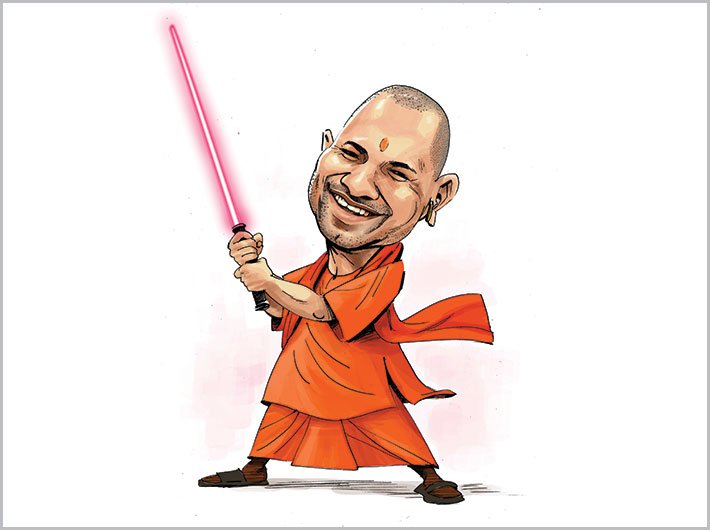Custodial death of a rape victim’s father is far beyond ordinary crime: It is indicative of a deeply criminalised polity
Uttar Pradesh chief minister Yogi Adityanath can be singularly credited for borrowing the phrase, 'thok denge', from Bollywood flicks and introducing it right in the mainstream governance discourse.
The phrase is a Bollywood euphemism for eliminating somebody. Yogi used this expression last year ("Agar aparadh karenge to thok denge (if they commit crime, they will be bumped off"). He was sending what seemed like a stern message to criminals operating in Uttar Pradesh – either to mend their way or face the threat of being eliminated by the police. And the Uttar Pradesh administration, particularly the police, seemed to have internalised Yogi's message too literally.
The custodial killing of the father of a rape victim in Unnao is just the latest example of how governance gets brutalised when the state’s chief executive gives a carte blanche to the police to brand anybody a criminal and kill at will. Kuldeep Singh Sengar, a powerful Rajput legislator from the ruling BJP, ensured that the law enforcement agencies abetted the crime when his men carried out the killing of the man whose daughter had accused him, the legislator, of raping her. The police at best was a conspirator to the crime.
Monday’s incident is far beyond an ordinary crime. It is indicative of a deeply criminalised polity which has further worsened with the ascension of Yogi as chief minister. The reasons for this criminal conduct of the state is not far to seek. The Uttar Pradesh police have staged a series of dubious encounters in the past one year or so – ostensibly to eliminate criminals, thus assuming powers which are extrajudicial. And they are acting as a law unto themselves.
How else would one explain the killing of a hapless man whose family is the victim of a powerful legislator’s misdeeds? In normal circumstances, the legislator and his brother should have been arrested immediately after the woman accused them of molestation and rape. But Sengar was seen sauntering around the office of the chief minister and thumbing his nose at the rule of law by describing the rape victim and his family as "nichle istar ke log (low-level people)". Can any other rape accused be given such a liberty in a civilised society? (The MLA’s brother, Atul Singh Sengar, was arrested finally on Tuesday – only after the media cried foul.)
How has this situation come about? The fact that governance in the country’s largest state cares two hoots to be held accountable to the rule of law is a grim reality. What complicates the situation is the impression that Yogi is a Rajput chief minister who is incapable of taking along the diverse social groups. Given his saffron robe and his past utterances, Yogi did little to allay the apprehension of the Muslims. He rather reaffirmed it when he needlessly said that he would not celebrate Eid as he is a Hindu. Apart from the communal divide, Yogi does not appear to be astute enough to accommodate varied caste groups which formed a sizeable support base for the BJP in the 2017 assembly elections. This is very well reflected in the Yogi government’s penchant for picking up Rajput officers to be posted in prime positions in the administration and the police. This practice of running the government is not different from his predecessor Akhilesh Yadav’s style of functioning except for the fact that Yogi has introduced unfettered machismo in the statecraft.
It would have been instructive if Yogi had tried to look at the record of an earlier predecessor, VP Singh, who assumed the chief ministership of the state in the early eighties. The erstwhile Raja of Manda, soon after taking over the charge, vowed to end the menace of dacoits in the Chambal ravines and launched an aggressive muscular policy against brigands. VP Singh soon realised that his approach was counterproductive. The police operations proved to be much oppressive for OBCs and scheduled castes while dacoits continued to operate with impunity.
The Unnao incident must serve as a warning signal to the chief minister whose fascination for a macho state may prove to be equally counterproductive as it was for VP Singh. It would be good for the state and its people if Yogi realises sooner rather than later that the adherence to the rule of law is sine qua non for the evolution of a civilised and just society. The overt or covert protection of people like Sengar is a sure recipe for a chaos that will ultimately prove to be his undoing.
This comment has first appeared in FirstPost.com

